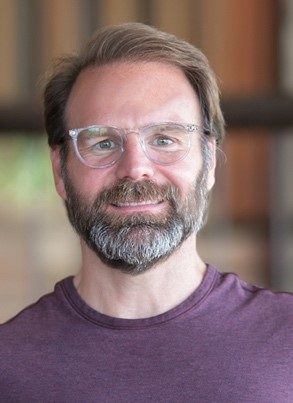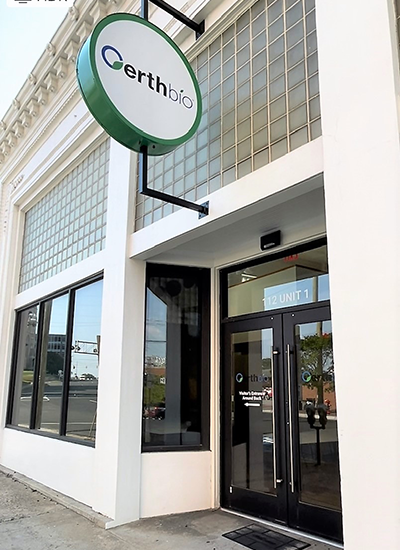
Bayer and Oerth Bio Launch New Collaboration as Oerth Celebrates Durham Facilities Expansion

More than 100 people gathered at Oerth Bio, an agricultural biotechnology company in downtown Durham, to hear about a new collaboration between Oerth and Bayer, a global enterprise focused on health care and nutrition, and to celebrate Oerth’s facilities expansion.
The companies will develop the next generation of more sustainable crop protection products. The unique protein degradation technology used by Oerth Bio, PROTAC, has the potential to generate products that support Bayer’s sustainability objective to reduce the environmental impact of agriculture via lower application rates and favorable safety profiles, Bayer said in a news release announcing the collaboration.
The agreement recommits to the combination of Oerth Bio’s specialized expertise designing PROTAC degraders for agriculture with Bayer’s global infrastructure testing, developing and commercializing leading crop protection technologies. It also builds on the company launch in 2019 through the joint venture of Leaps by Bayer, Bayer AG’s impact investment arm, Arvinas, a clinical-stage biotechnology company based in New Haven, Connecticut, and has proven successful, meeting initial targeted milestones, Bayer said. PROTAC is a registered trademark of Arvinas Operations Inc. and is used under license.

Initially developed to fight human diseases such as cancer and other difficult-to-treat diseases, Oerth’s patented PROTAC technology provides an innovative pathway to entirely novel crop protection and climate resilient farm solutions. Oerth Bio remains the first and only company researching agricultural PROTAC solutions.
“The world’s farmers need dependable and sustainable solutions to crop protection challenges, and PROTAC protein degradation technologies show an increasingly promising path toward a new way to develop tailored technologies,” said Robert Reiter, Ph.D., head of research & development at Bayer’s Crop Science Division. “We expect protein degradation technology, already used in medicine, to be an important cornerstone for the development of new crop protection products that reduce the impact on the environment significantly. Oerth Bio’s work has proven to be promising, and we are looking forward to what the next phase of our work together will bring.”

Oerth Bio’s CEO John Dombrosky said, “This collaboration further emboldens our ambitions for first-in-the-world farm-centric protein degrader solutions. It's a real tribute to Bayer’s leadership and vision, as they significantly invest in breakthroughs that could change farming and the world for the better.”
Announcement attendees included company leaders and employees; local and state elected officials; farmers and other agricultural technology representatives; life sciences and economic development organizations such as the North Carolina Biotechnology Center, North Carolina Biosciences Organization, the North Carolina Office of Science, Technology and Innovation and the Research Triangle Regional Partnership; and university representatives such as the North Carolina Plant Sciences Initiative at North Carolina State University.
Oerth Celebrates Facilities Expansion
The Bayer announcement coincided with Oerth’s open house to celebrate a significant facilities expansion at 810 W. Peabody St. in downtown Durham. The expansion doubles lab facilities for continued growth of the company’s technology platform and will allow for workforce growth to about 100 employees over the next few years. The new site is conveniently located adjacent to the company’s current facility at 112 S. Duke St., in Durham’s historic Brightleaf District.

BioLabs North Carolina, a biotech co-working facility in downtown Durham, served as Oerth’s initial incubator, said BioLabs president Ed Field. The organization worked with Oerth to expand while maintaining its Durham footprint and is the developer of the multi-tenant building on Peabody Street. The concept of providing “great space allowing companies to grow to the next 15 to 20 employees while keeping them in Durham” has worked, Field said.
The original location and expansion reflect the company’s priority to locate near Research Triangle’s strong regional talent pool, as well as the growing agricultural-technology hub in North Carolina, other speakers noted in their remarks.
“John Dombrosky and Ryan Combs [Research Triangle Regional Partnership] both commented today that the N.C. ag-tech sector has grown substantially over the past decade, and I fully agree,” said Paul Ulanch, PhD, senior director of focused initiatives at NCBiotech. “Many stakeholders including NCBiotech have leveraged strengths in N.C. to attract and grow companies such as Oerth that are commercializing emerging technologies.
“These new products aim to improve agricultural production and farm profitability, which we anticipate will sustain N.C. and U.S. agricultural leadership. NCBiotech is proud to be part of a team of partners that facilitate these vital relationships for sustainability and economic success,” Ulanch added.
